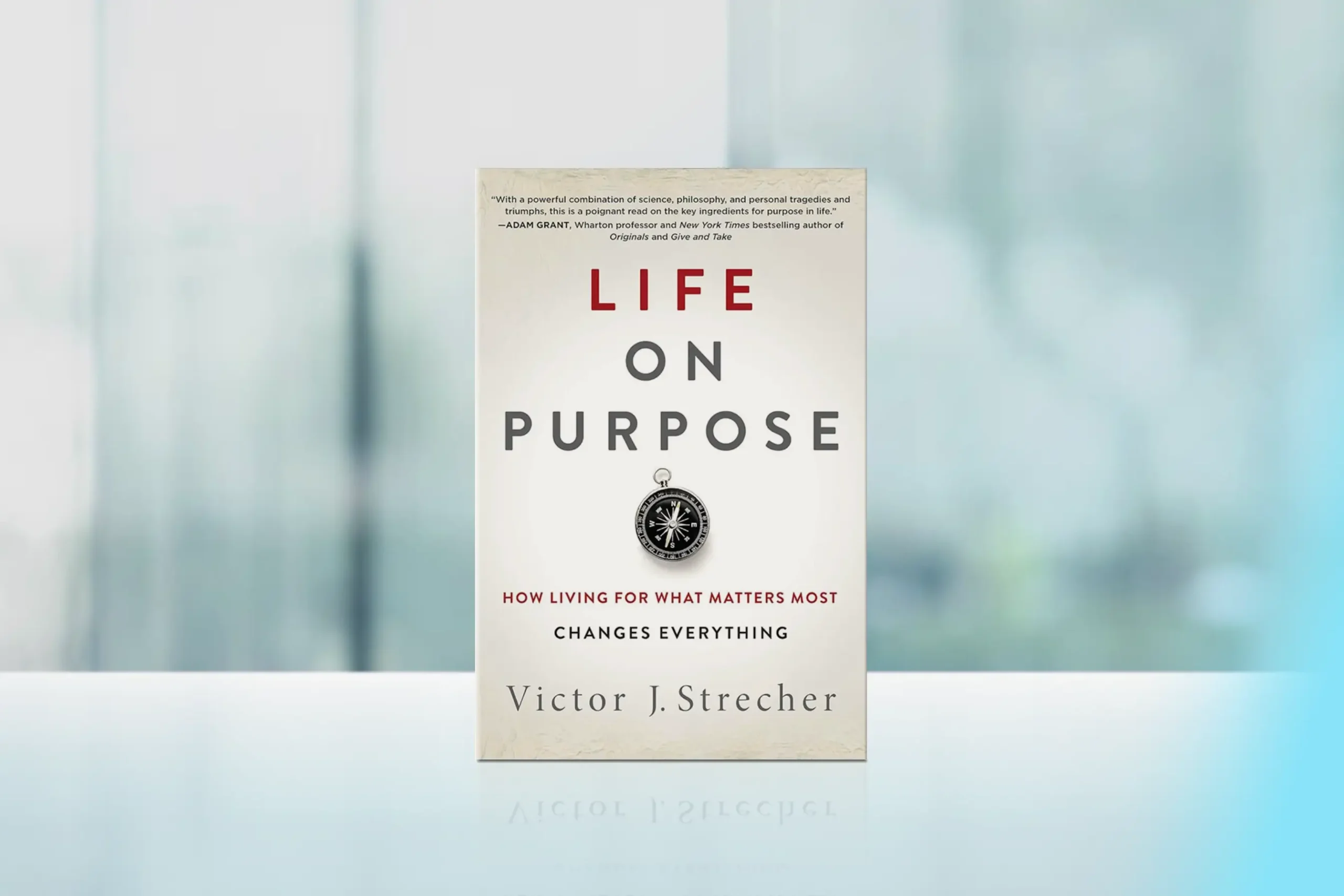Many individuals feel a deep yearning for something more, a sense that they’re meant for something greater, but struggle to pinpoint exactly what that might be. The quest for purpose is a fundamental human journey, one that can lead to profound fulfillment and a life of meaning. But how does one embark on this journey of self-discovery?
This comprehensive guide explores the concept of life purpose, why it matters, and most importantly, how individuals can uncover and live their unique purpose. This isn’t about finding a single, fixed destination, but rather about embarking on a rich, evolving journey of self-discovery and personal growth.
As readers dive into this exploration, it’s important to remember that discovering one’s life purpose is a deeply personal process. It’s natural to feel uncertain or overwhelmed – these are normal parts of the journey. What matters most is the willingness to engage in this process of self-reflection and growth.
Understanding Life Purpose
What is Life Purpose?
At its core, a person’s life purpose is the central motivating aim of their life – the reason they get up in the morning. It’s not just about a job or career, but encompasses all aspects of life. Purpose is the underlying theme that gives life direction and meaning.
Dr. William Damon, a leading researcher on purpose, defines it as “a stable and generalized intention to accomplish something that is at the same time meaningful to the self and consequential for the world beyond the self.” This definition highlights two crucial aspects of purpose:
- It’s personally meaningful to the individual.
- It contributes to something larger than oneself.
Why Does Purpose Matter?
Understanding and living one’s purpose can have profound effects on life. Research has consistently shown that people with a strong sense of purpose tend to:
- Experience greater life satisfaction and happiness
- Have better physical and mental health
- Be more resilient in the face of challenges
- Feel more connected to others and their community
As Viktor Frankl, author of “Man’s Search for Meaning,” famously said, “Those who have a ‘why’ to live, can bear with almost any ‘how’.”
Reflection Prompt: Individuals should consider: What activities or causes make them lose track of time? When do they feel most alive and energized?
Exploring Values and Passions
Identifying Core Values
Values are the principles that guide decisions and behaviors. They’re what an individual considers most important in life.
Exercise: One should take 10 minutes to write down their top 5-10 values. Some examples might include honesty, creativity, family, personal growth, or social justice. It’s important not to overthink – go with what feels true.
Uncovering Passions
Challenge: Over the next week, individuals should pay attention to what activities make them feel most engaged and alive. Keeping a “passion journal” to note these moments and any patterns observed can be helpful.
It’s important to remember that passions can evolve over time, and that’s okay. The goal is to identify what resonates deeply right now
Reflecting on Strengths and Skills
Recognizing Natural Talents
Everyone has natural abilities that come easily to them. These might be things like problem-solving, empathy, creativity, or leadership.
Exercise: One should ask 5-10 people who know them well what they see as their greatest strengths. These perspectives might reveal talents that have been overlooked.
Developing Skills
While natural talents are important, skills developed through effort and practice are equally valuable.
Reflection Prompt: What skills has one worked hard to develop? How might these contribute to a larger purpose?
Aligning Purpose with Life Experiences
Learning from Challenges
Often, the most difficult experiences can point towards one’s purpose. Many people find meaning in helping others overcome challenges similar to those they’ve faced.
Exercise: Reflect on a significant challenge overcome. What was learned? How might this experience inform one’s purpose?
Identifying Moments of Joy and Fulfillment
Equally important are the experiences that have brought the greatest joy and sense of fulfillment.
Challenge: Create a “life highlights reel.” Write down 10-15 of the proudest or most joyful moments. Look for common themes among these experiences.
Connecting the Dots: Synthesizing Insights
Looking for Patterns
One should review all the insights gathered so far. What patterns or themes are noticeable?
Exercise: Create a mind map or vision board that visually represents the key elements identified. This can help in seeing connections that might have been missed.
Crafting a Purpose Statement
Based on these reflections, one should try to articulate their life purpose in a single sentence. It’s important not to worry about perfection – this is a starting point that can evolve over time.
Challenge: Write a draft purpose statement. It might follow this format: “I exist to [action] so that [impact].” For example: “I exist to create art that inspires people to connect with nature.”
Remember, a purpose statement isn’t set in stone. It’s a living document that can change as one grows and evolves.
Living One’s Purpose
Aligning Daily Actions
It’s important to start by making small, purposeful choices each day that align with one’s values and purpose.
Challenge: For the next week, begin each day by asking: “What’s one thing I can do today that aligns with my purpose?” Then, make sure to do that one thing.
Overcoming Obstacles
Living one’s purpose isn’t always easy. There may be doubts, setbacks, or resistance from others.
Reflection Prompt: What potential obstacles might one face in living their purpose? How can they prepare to overcome these challenges?
Practical Application
Now that the components of discovering one’s life purpose have been explored, it’s time to put it all into practice with a comprehensive exercise.
The Life Purpose Discovery Exercise:
- Values Clarification: List your top 5 values.
- Passion Exploration: Write down 3 activities that make you lose track of time.
- Strengths Assessment: Identify your top 3 strengths or skills.
- Life Experience Reflection: Note 2 significant challenges you’ve overcome and 2 of your proudest accomplishments.
- Impact Consideration: Describe the change you’d most like to see in the world.
- Purpose Statement Draft: Using the insights from steps 1-5, write a draft purpose statement.
- Action Plan: Identify 3 specific actions you can take in the next week to start living your purpose.
It’s important to remember that this is a starting point. One’s understanding of their purpose may evolve as they continue to reflect and take action.
The Journey Forward
Discovering and living one’s life purpose is not a one-time event, but a lifelong journey of growth and self-discovery. As individuals continue on this path, it’s important to remember that it’s okay for purpose to evolve. What matters most is living intentionally and in alignment with one’s deepest values and aspirations.
As one moves forward, it’s worth considering: How might living one’s purpose not only bring fulfillment to their life, but also positively impact the lives of others and the world around them?
Each person’s unique purpose is a gift – both to themselves and to the world. By living it fully, individuals not only create a life of meaning and fulfillment for themselves but also contribute to the greater good in ways only they can.
It’s crucial to remember that every step taken towards understanding and living one’s purpose is valuable. Trusting the journey, embracing the process of self-discovery, and knowing that within oneself lies everything needed to create a life of profound meaning and impact are key.
What will one do today to take one step closer to living their purpose?
For further exploration of this topic, “Finding Your Element” by Ken Robinson and “Start with Why” by Simon Sinek are highly recommended. “Finding Your Element” guides readers through the process of discovering their talents and passions, which are crucial components in uncovering one’s life purpose. “Start with Why” provides a framework for understanding the importance of purpose in both personal and professional contexts.
Each individual’s purpose is waiting to be discovered and lived. The world needs their unique gifts and contributions. The question is: Are they ready to answer the call?





